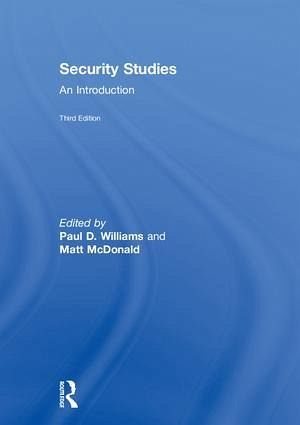Paul D. Williams is Associate Professor and Associate Director of the Security Policy Studies MA Program in the Elliott School of International Affairs at the George Washington University. Dr Williams is also a non-resident senior adviser at the International Peace Institute in New York. His most recent publications include Fighting for Peace in Somalia: A history and analysis of the African Union Mission (AMISOM), 2007-2017 (Oxford University Press, 2018); War and Conflict in Africa (Polity, 2nd edition, 2016); The Oxford Handbook of United Nations Peacekeeping Operations, edited with J. Koops, N. MacQueen, and T. Tardy (Oxford University Press, 2015); Providing Peacekeepers: The Politics, Challenges, and Future of United Nations Peacekeeping Contributions, edited with A.J. Bellamy (Oxford University Press, 2013); and Understanding Peacekeeping, with A.J. Bellamy (Polity, 2nd edition, 2010). Matt McDonald is Reader in International Relations at the School of Political Science and International Studies at the University of Queensland. His most recent publications include Ethics and Global Security: A Cosmopolitan Approach, with Anthony Burke and Katrina Lee-Koo (Routledge, 2014) and Security, the Environment and Emancipation (Routledge, 2012). He is co-editor of the Australian Journal of Politics and History.




